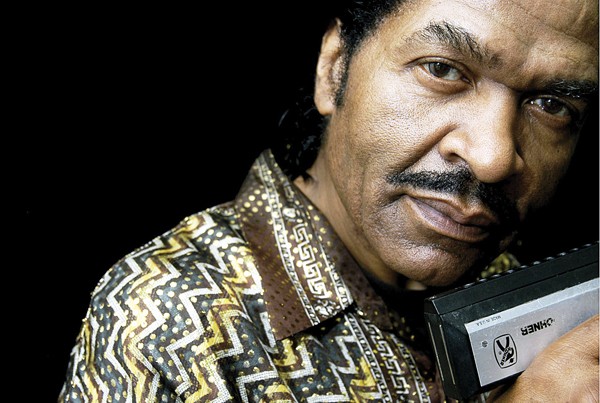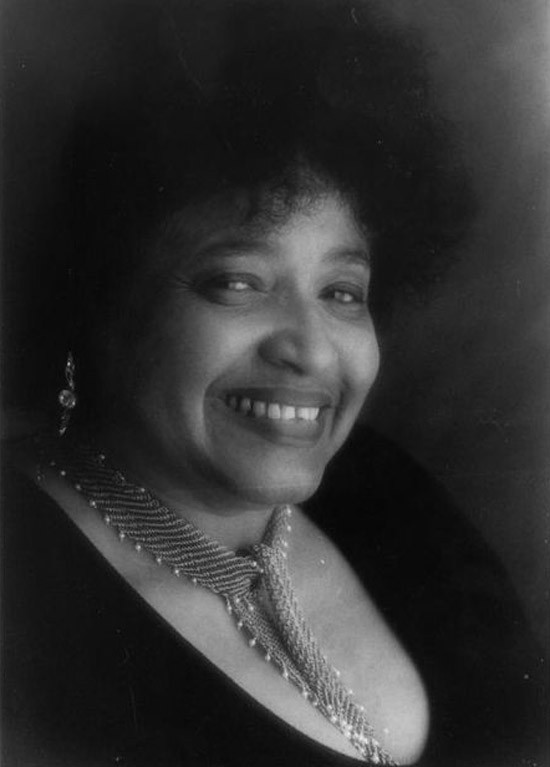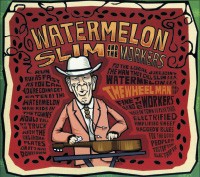It’s hard to imagine Bobby Rush as anything other than an energetic blur of bling and bawdy shenanigans, stalking the stage like a funky tiger, shirtless but wearing a brightly colored suit trimmed out in spangles and sequins and singing about the myriad pleasures and the untold difficulties of making love to a big, fat woman. It’s almost impossible to think of him as a grandfather.
“Okay, you can put away your calculator now,” Rush says from his home in Jackson, Mississippi. He’s been talking about his 6-year-old grandson who knows he can get that $130 baseball bat if he tells his grandfather he’s the best grandfather in the world.
“I can sense that you’re sitting there punching the buttons trying to figure out how old I am,” says Rush whose career stretches back to the very beginning of the rock-and-roll era. “Well, I can tell you this: I’m not 75. I am over 70 though.”
For Rush, 2006 marks 51 years of putting the fun in funk and keeping the blues blue.
“A hit record introduces you to your audience,” Rush explains, “but a hit show gives you staying power.” And there can be no denying that the eternally virile bluesman knows a little something about the nature of hit records and the power of solid-gold entertainment.
Rush got his start when he was a teenager. He would paint a fake mustache on his face to make himself look older and fib his way into adults-only clubs. At a time when James Brown was earning his reputation as the hardest-working man in show business, Rush was working circles around him, playing several clubs a night and snagging a little extra work as an emcee when he could get it. Over the years, Rush’s show has evolved in the direction of vaudeville as he added dancers, back-up singers, and comedy sketches. His band has featured such stellar players as Freddy King and the great Elmore James.
“I grew up listening to Louis Jordan,” he says. “And I loved how he could write a serious song in a funny sort of a way. I loved that his words always had more than one meaning.”
The song Rush uses to illustrate his point is “Straighten Up and Fly Right,” which was a hit for several artists, including Jordan and Nat King Cole.
“It was about a buzzard who gave a monkey a ride,” Rush says. “Well, the buzzard played a trick on the monkey, and so the monkey puts his tail around the buzzard’s neck and chokes up on him a little and says, ‘You better fly right.'” The song’s humor was its selling point to white audiences, but for blacks before the civil rights era, it was a morality tale about overcoming deception and fighting back.
“That’s how I knew I wanted to write songs that were funny and that could mean more than one thing.”
Like Jordan, whose song “Saturday Night Fish Fry” is a strong contender for the first rock-and-roll song, Rush has developed a large audience of both black and white fans, and he’s done so on his own terms.
“I like to say I crossed over without crossing out,” Rush says.
But even a successful artist can burn out after touring for half a century.
“I’ve had some moments when I just didn’t think I could do it anymore,” Rush says. “You start having doubts about yourself. I’ll be tired of the rat race. I’ll be tired of singing the same old songs and seeing the same old faces. And that’s when I ask God to help me to be enthused about my music. And that’s when I remember back in 1966 going in a club where Little Milton was playing, and there were 200 people at that show. I remember thinking then, If I can ever draw 200 people, I’ll be happy.
“Now sometimes I play in front of 2,000 people. Or 40,000 people,” Rush says. “But sometimes I play for 500 people too. I still love playing the small clubs.”
Small clubs are where Rush earned his audience by touring relentlessly in the ’70s and ’80s, and he refuses to forget the people who helped him get where he is today.
“I remember thinking that if I was ever successful I’d always bring it back to the places where I started,” he says. “Sure, I work the big venues, but I take it back to the juke joints and the chicken shacks too. Sometimes I make $20,000, and sometimes I make $2,000, and [promoters] tell me, ‘It’s a problem when you work one club for $2,000 and another for $20,000.’ I tell them, ‘That’s your dilemma.'”
Whether he’s singing about “Sue,” a young lady of intriguing dimensions or about the life of a “Henpecked Man,” Rush knows how to connect with his audience. He plans to spend the next several years giving his fans even more than they ever bargained for.
“I’d like to be able to do four, five, maybe even six CDs a year,” Rush says. He intends to reissue his back catalog, including many previously unreleased songs.
“Good, bad, indifferent, I want to put it all out there,” he says. “This is Bobby Rush talking to you now, and it doesn’t matter if I’m talking to you on the phone or backstage at a show. This is Bobby Rush. This is who I am.”
Bobby Rush
The Tri-State Blues Festival, with Bobby “Blue” Bland, J. Blackfoot, Shirley Brown, and others
Desoto Civic Center
Saturday, August 19th
6:30 p.m., tickets $29-$40







